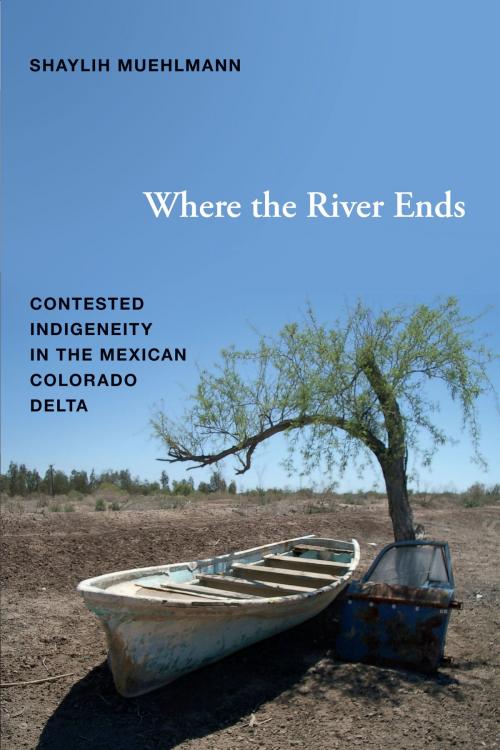Where the River Ends
Contested Indigeneity in the Mexican Colorado Delta
Nonfiction, Social & Cultural Studies, Social Science, Cultural Studies, Native American Studies, History, Americas, Mexico, Anthropology| Author: | Shaylih Muehlmann | ISBN: | 9780822378846 |
| Publisher: | Duke University Press | Publication: | May 23, 2013 |
| Imprint: | Duke University Press Books | Language: | English |
| Author: | Shaylih Muehlmann |
| ISBN: | 9780822378846 |
| Publisher: | Duke University Press |
| Publication: | May 23, 2013 |
| Imprint: | Duke University Press Books |
| Language: | English |
Living in the northwest of Mexico, the Cucapá people have relied on fishing as a means of subsistence for generations, but in the last several decades, that practice has been curtailed by water scarcity and government restrictions. The Colorado River once met the Gulf of California near the village where Shaylih Muehlmann conducted ethnographic research, but now, as a result of a treaty, 90 percent of the water from the Colorado is diverted before it reaches Mexico. The remaining water is increasingly directed to the manufacturing industry in Tijuana and Mexicali. Since 1993, the Mexican government has denied the Cucapá people fishing rights on environmental grounds. While the Cucapá have continued to fish in the Gulf of California, federal inspectors and the Mexican military are pressuring them to stop. The government maintains that the Cucapá are not sufficiently "indigenous" to warrant preferred fishing rights. Like many indigenous people in Mexico, most Cucapá people no longer speak their indigenous language; they are highly integrated into nonindigenous social networks. Where the River Ends is a moving look at how the Cucapá people have experienced and responded to the diversion of the Colorado River and the Mexican state's attempts to regulate the environmental crisis that followed.
Living in the northwest of Mexico, the Cucapá people have relied on fishing as a means of subsistence for generations, but in the last several decades, that practice has been curtailed by water scarcity and government restrictions. The Colorado River once met the Gulf of California near the village where Shaylih Muehlmann conducted ethnographic research, but now, as a result of a treaty, 90 percent of the water from the Colorado is diverted before it reaches Mexico. The remaining water is increasingly directed to the manufacturing industry in Tijuana and Mexicali. Since 1993, the Mexican government has denied the Cucapá people fishing rights on environmental grounds. While the Cucapá have continued to fish in the Gulf of California, federal inspectors and the Mexican military are pressuring them to stop. The government maintains that the Cucapá are not sufficiently "indigenous" to warrant preferred fishing rights. Like many indigenous people in Mexico, most Cucapá people no longer speak their indigenous language; they are highly integrated into nonindigenous social networks. Where the River Ends is a moving look at how the Cucapá people have experienced and responded to the diversion of the Colorado River and the Mexican state's attempts to regulate the environmental crisis that followed.















